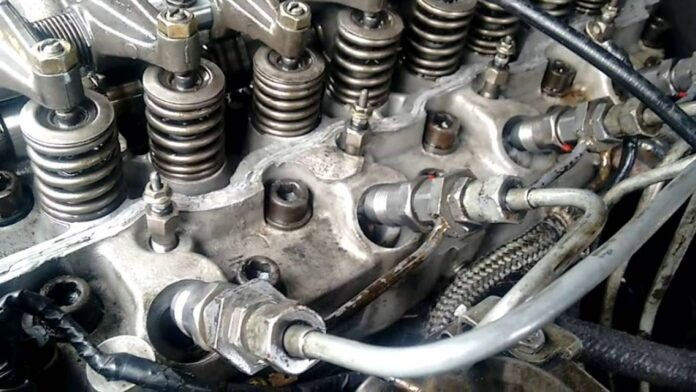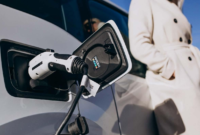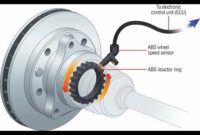
The performance of the fuel injection pump is closely related to the engine running. In this sense, if a vehicle has a problem with the fuel supply, it will not be able to count on the necessary energy to cause the start. Therefore, common diesel injection pump failures require an immediate solution.
Before we get into the most common problems, it’s important to know how these pumps work, how they relate to engine performance, and lastly, how they differ from gas-powered units.
Table of Contents
What is a diesel injection pump and how does it work?
The injectors supply fuel to the internal combustion chamber of the engine. The high performance cars usually have one fuel injector per cylinder and the pump injects fuel into the combustion chamber, hence the name “fuel injector”.
Fuel is dispersed from the injection pump to the combustion chamber through a simple process. First, pressurized fuel enters the fuel injector. Based on a signal from an electrically controlled solenoid valve (acting in on/off mode), fuel enters a plunger, which prepares the fuel for final output. Then, as the fuel leaves the injector, a spray nozzle distributes the fuel as a fine mist.
Current diesel injection pumps

Today’s diesel fuel injection pumps are under pressure, even more pressure than was once considered normal. About 15 or 20 years ago, it was common for fuel injection pumps to process fuel in a system at around 10,000 to 15,000 psi (pounds per square inch). But that’s only half of what engines are currently expected to do. Therefore, These diesel fuel injector pumps are operating in the 30,000 to 40,000 psi range.
At the same time, engine performance of high end cars is dictated in many ways by the amount of fuel the engine can process. Basically, a top engine can process fuel and air better than an average engine, that’s one of the reasons why turbochargers they are so effective in increasing potency. For all this, a higher internal pressure is necessary.
Common failures of diesel injection pump
There are two main reasons to explain common diesel injection pump failures. In this sense, 99% of problems with diesel fuel injectors are due to mechanical damage to the physical housing of the fuel injector or to the poor fuel quality.
As a consequence of these two factors, a series of complications can arise that are frequent. We see them below.
1.- Dirty fuel

To function ideally, a diesel fuel pump injector must be clean. Over time, residue can build up in these systems. Enough amount of dirt, grime, and grease can clog the entire fuel injector pump. Also, the spray tip (where fuel exits the injector and enters the combustion chamber) is particularly prone to this problem.
If your engine has ever sputtered or hesitated during acceleration, a clogged fuel spray nozzle could be the fault. It all starts with mediocre diesel fuel. In 2006, diesel fuel production was modified to compensate for ultra low sulfur content (ULSD) products. Since then, diesel engine owners have noted more difficulties with dirty fuel than ever before.
2.- Running the car repeatedly with a low level of fuel in the tank

When the car repeatedly works with low fuel levels, injectors are more at risk of being damaged or even destroyed. This is due to lubrication or, in this case, its lack. With enough diesel fuel in the tank, the fuel pump bearings receive enough lubrication. With a nearly empty tank, the fuel system may be pushing air instead of diesel fuel.
On the other hand, anything other than diesel fuel can wear out the pump bearings, meaning the injectors won’t receive fuel at the pressurized level (30,000 psi or 40,000 psi) that it should be.
3.- Foreign objects inside the injector
Diesel fuel pump injectors are high precision components. They also deal with a tremendous amount of movement and other stresses. A piece of dust, debris or any other small object inside can clog the injector. Worse yet, a microscopic object can leave the injector open all the time. In turn, if the injector cannot close, cylinder performance is compromised.
4.- Bad injector synchronization
Defective injector pump seals or ball seats disrupt the timing of the fuel transfer process. This is a common diesel fuel pump failure and, usually requires a complete rebuild or replacement of this part.
- You may also be interested in: What is AdBlue and what is it used for in diesel cars
Tips to Avoid Common Diesel Injection Pump Failures

While common diesel injection pump failures can have extremely damaging consequences for a car avoiding them is relatively easy. This is because if you follow certain precautions you can enjoy good performance from your engine. Also, when something needs to be repaired the cost will be minimal compared to a larger problem.
In this sense, the first thing you should do is buy clean, reliable and quality fuel. On the other hand, it is advisable change the fuel filter every 40,000 miles, or according to the mileage that is necessary in each model of car. You can consult the manufacturer’s manual or the same company that sold you the car to find out this information.
Lastly, it is It is essential to keep the fuel tank at least a quarter full. for as long as possible. In this way, it is possible to avoid common diesel injection pump failures.
KEEP READING:
- Black smoke in diesel engines – Causes and how to eliminate it
- what is camshaft




